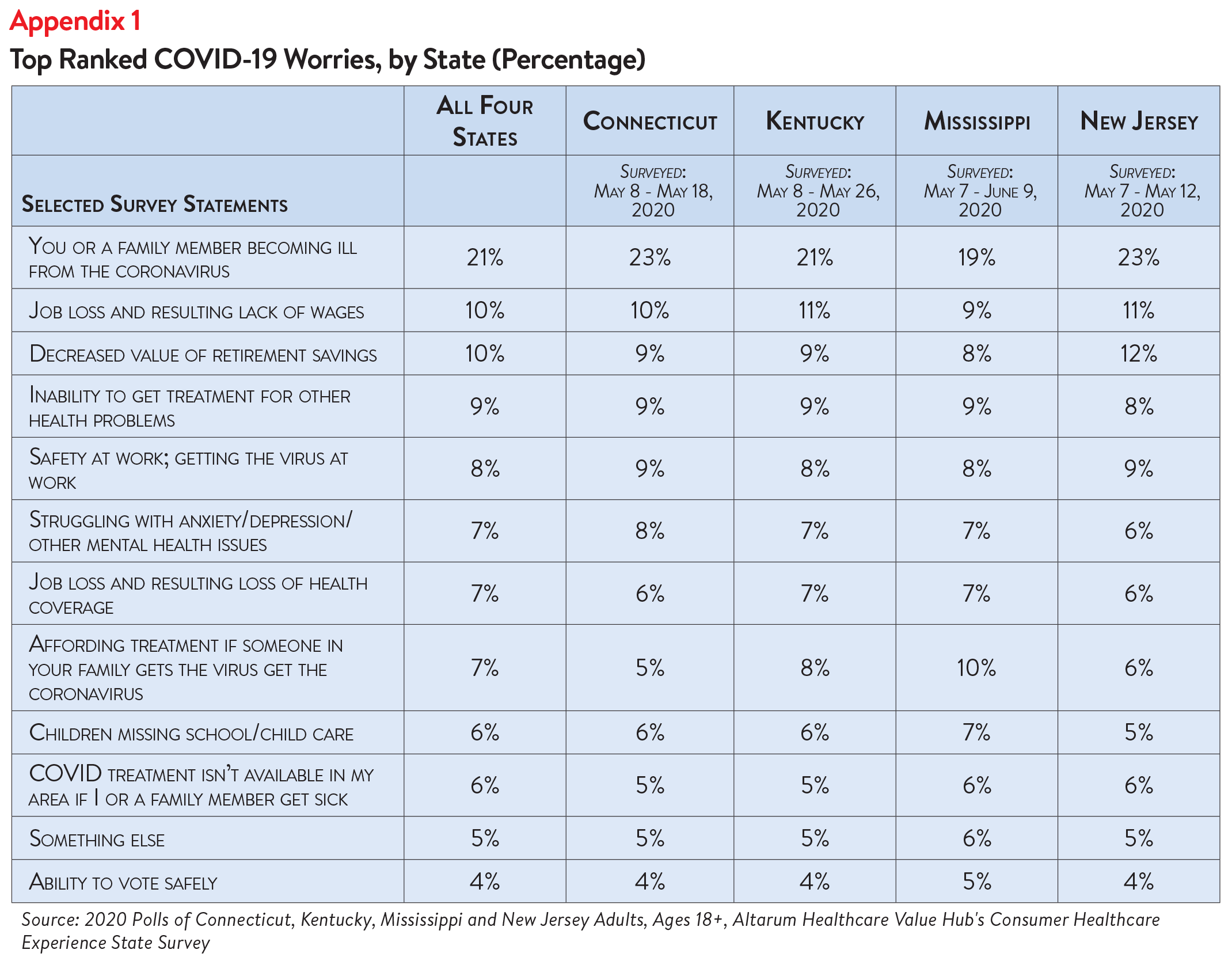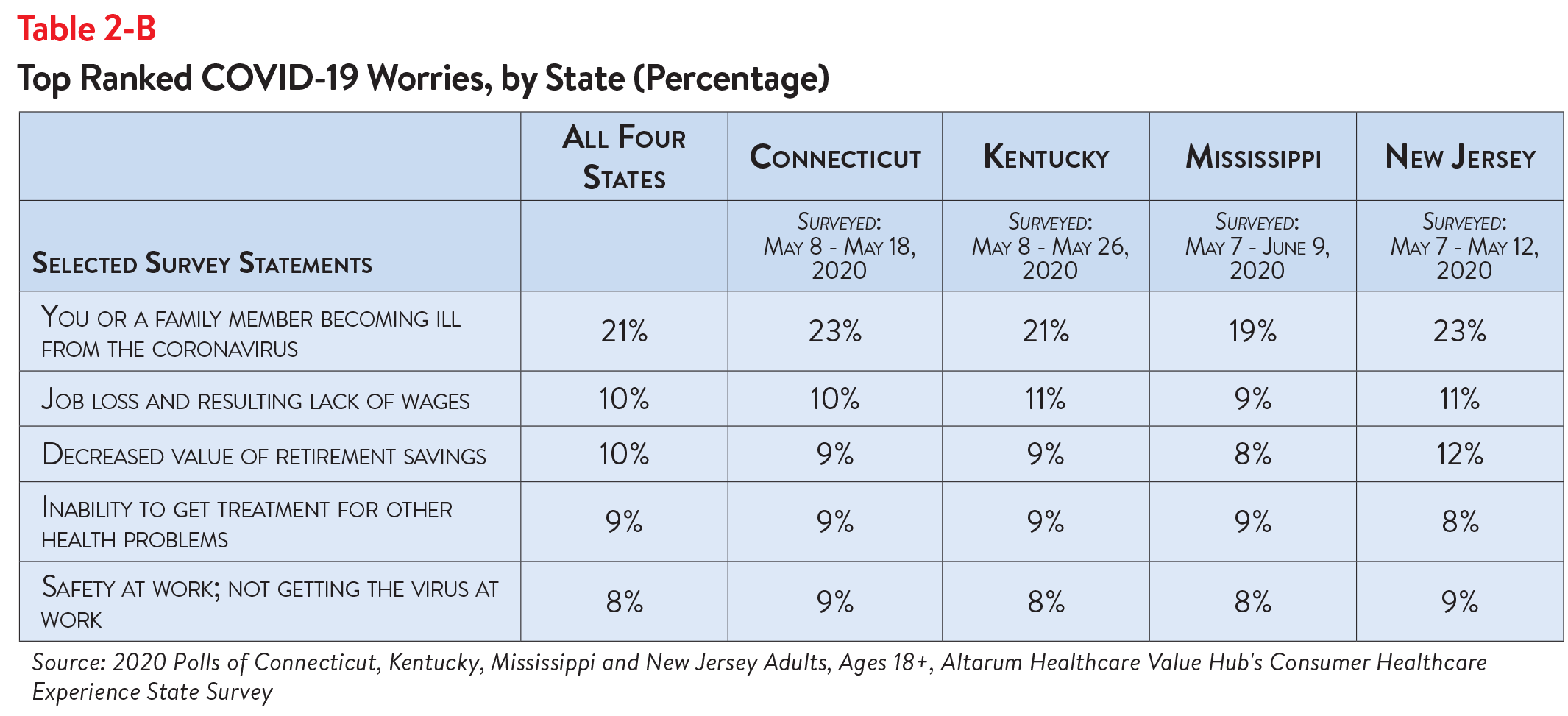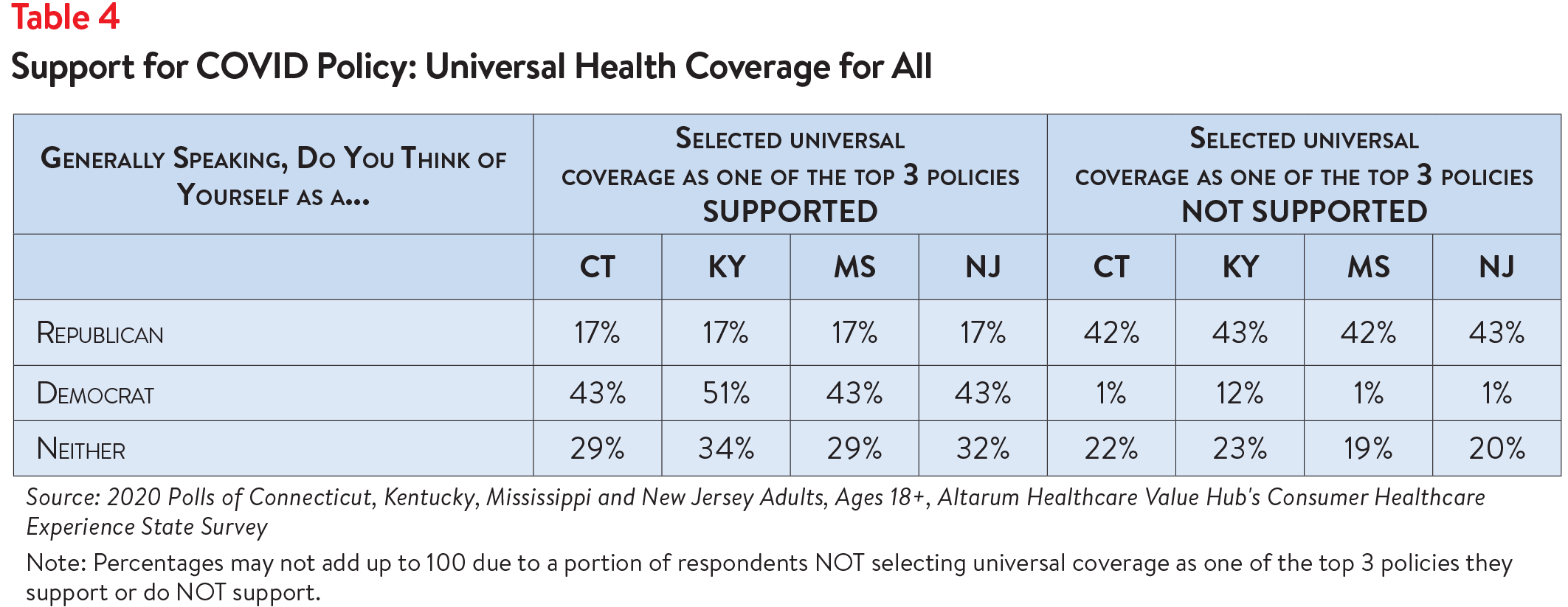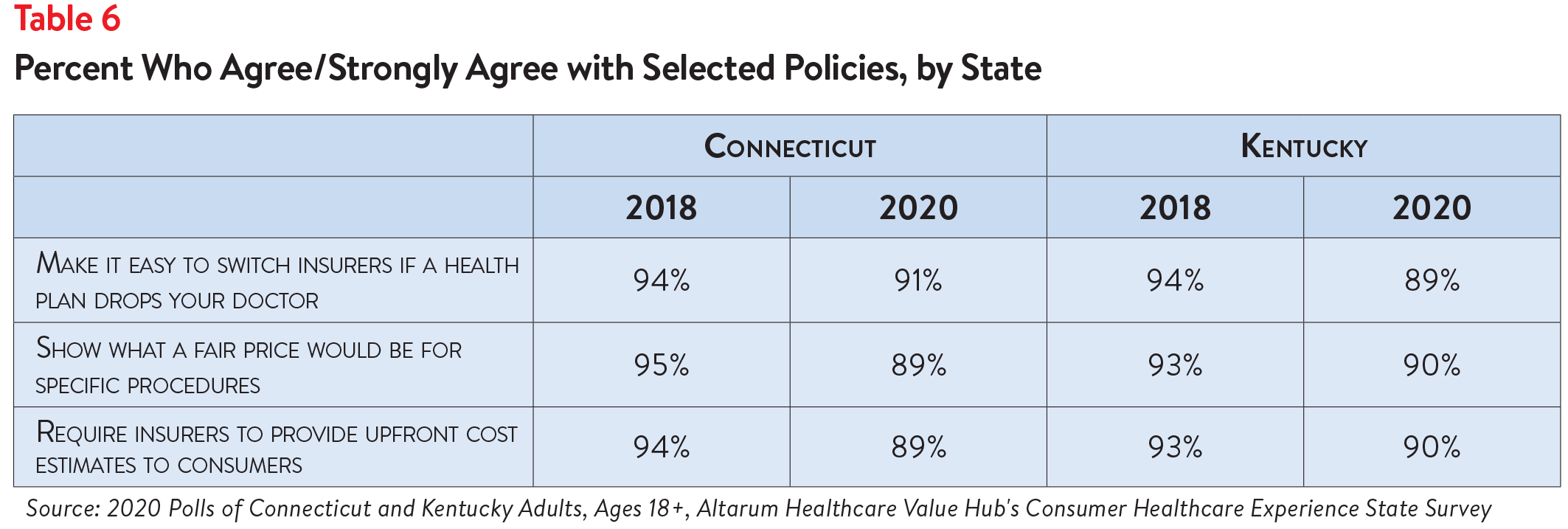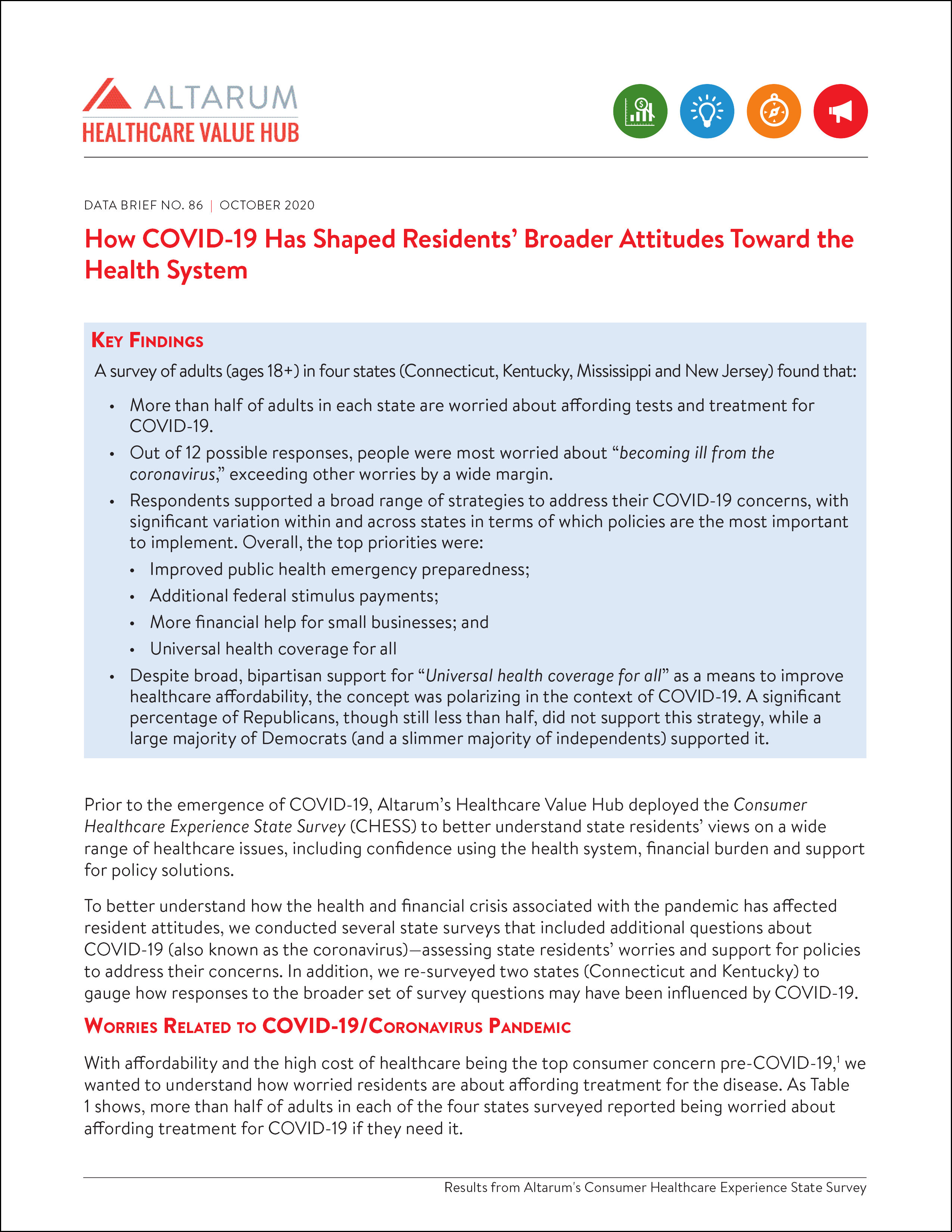How COVID-19 Has Shaped Residents' Broader Attitudes Toward the Health System
Prior to the emergence of COVID-19, Altarum's Healthcare Value Hub deployed the Consumer Healthcare Experience State Survey (CHESS) to better understand state residents' views on a wide range of healthcare issues, including confidence using the health system, financial burden and support for policy solutions.
To better understand how the health and financial crisis associated with the pandemic has affected resident attitudes, we conducted several state surveys that included additional questions about COVID-19 (also known as the coronavirus)—assessing the state residents' worried and support for policies to address their concerns. In addition, we re-surveyed two states (Connecticut and Kentucky) to guage how responses to the broader set of survey questions may have been influenced by COVID-19.
Worries Related to COVID-19/Coronavirus Pandemic
With affordability and the high cost of healthcare being the top consumer concern pre-COVID-19,1 we wanted to understand how worried residents are about affording treatment for the disease. As Table 1 shows, more than half of adults in each of the four states surveyed reported being worried about affording treatment for COVID-19 if they need it.

To understand how concern about affording COVID-19 treatment ranked among other worries, respondents were asked to pick their top three COVID-related worries out of twelve possible responses. The most commonly selected worried were largely consistent across the four states (see Table 2A).
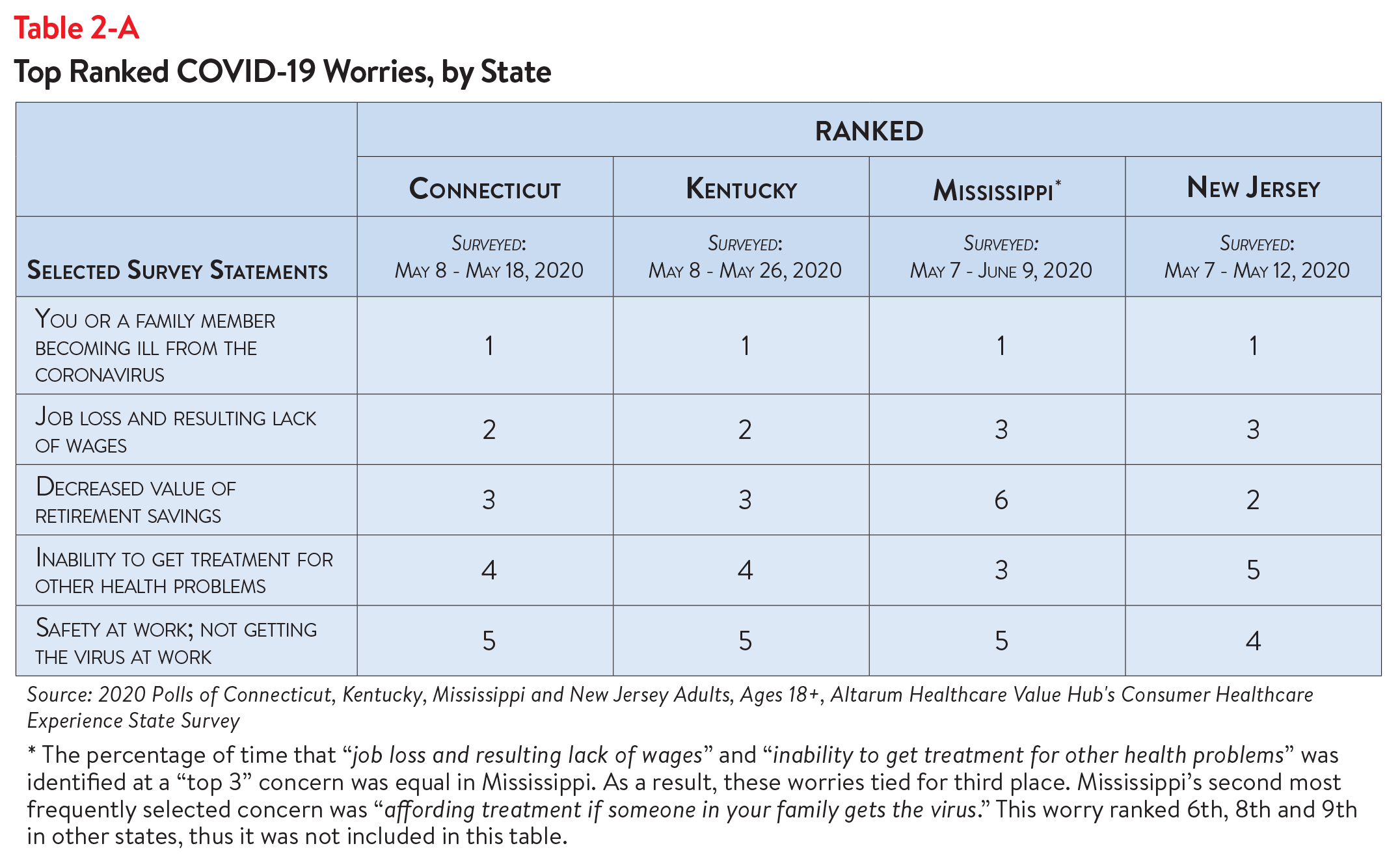
"You or a family member becoming ill from the virus" was consistently ranked as the top worry among the choices and exceeded other worries by a wide margin, garnering about twice as many "votes" as the next most common worry in each state.
The most commonly selected worries, and the percent of the time that each worry was identified as a "top 3" concern, is displayed in Table 2B. (For full table, see Appendix 1).
Support for Policies to Address COVID-19 Concerns
Additionally, respondents' views were fairly consistent when they were asked about support for and against policies related to the COVID-19 crisis. While there were some differences in the rank order, minimal differences in the percentage of the time that a policy was identified as a "top 3" policy supported indicated that the policies are viewed similarly.
Top-ranked COVID policies and the percent of the time each policy was identified as a "top 3" policy supported is displayed in Table 3.
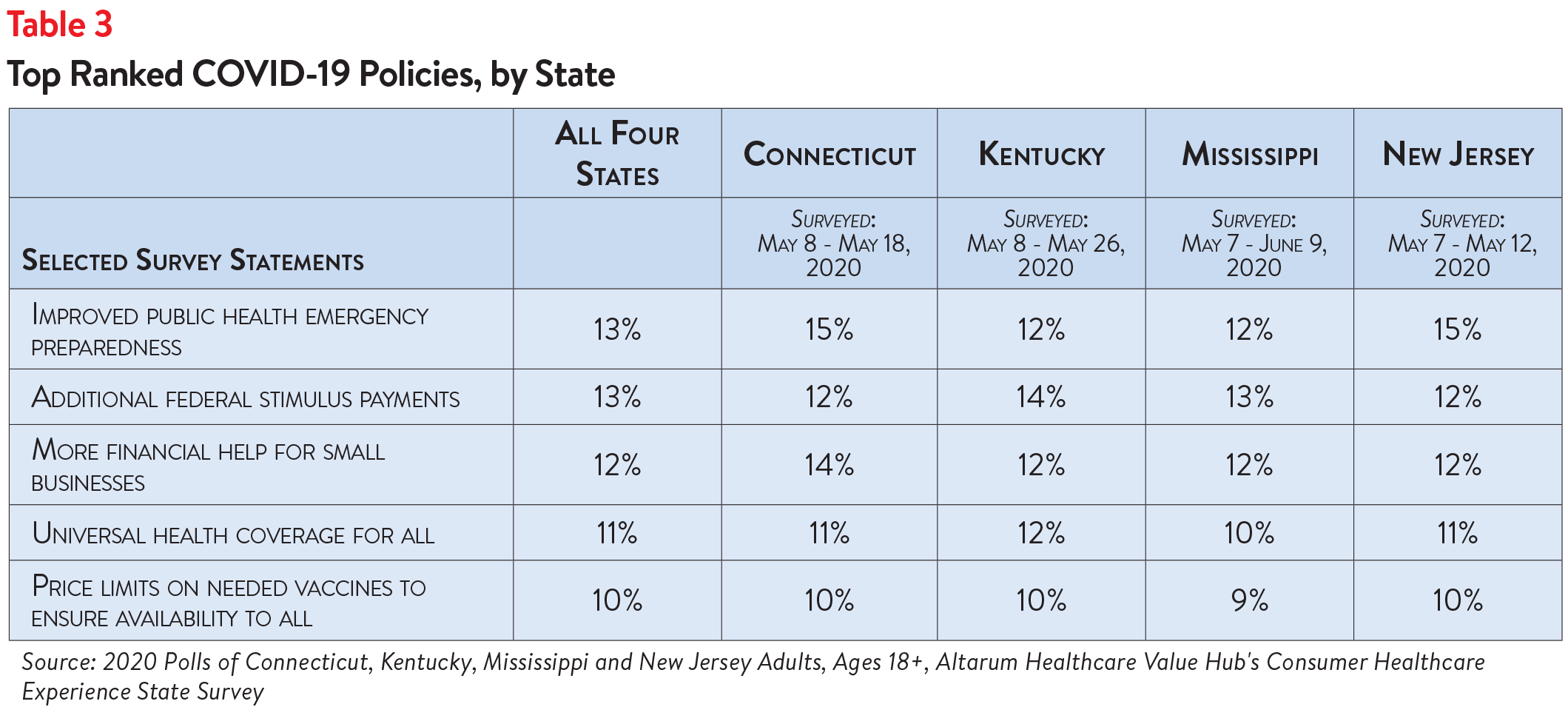
Of the eleven policy options provided, "More financial help for large businesses" received the fewest number of "votes" in each state surveyed. Additionally, this policy was selected most frequently when we reversed the query, asking respondents about the policies they do NOT support.
When asked about the policies they do NOT support, respondents were given the option of selecting "I support all of the policies listed." This was the most common answer for this section of the survey in Connecticut, Mississippi and New Jersey, and was the second most common answer in Kentucky.
One of the more interesting findings was the diversity of opinions on "Universal health coverage for all." While this was the 4th most common policy selected when respondents were asked to identify the top 3 policies they SUPPORT, it also received a significant number of selections when respondents were asked to identify the top 3 policies they do NOT support. Republicans were far more likely to NOT support "Universal health coverage for all" as a means to address COVID-19 concerns compared to Democrats and those not affiliated with either party (see Table 4). It is important to note, however, that when asked generally about "Expanding health insurance options to that everyone can afford quality coverage," more than 90% of respondents agreed or strongly agreed with this policy as a means of improving healthcare affordability.
Changes in General Attitudes About the Health System
While methodological differences preclude making assumptions about changes across years, we found a striking increase in satisfaction with the health system in Connecticut and Kentucky from 2018 to 2020 (see Table 5).
We speculate that the widespread support for "healthcare heroes" serving on the front lines of our COVID-19 response may have improved attitudes toward the health system more generally.
Despite the increase, only a minority of respondents expressed satisfaction with the health system. Moreover, respondents continued to support policy changes in high numbers and across party lines (see Table 6).
For state-specific information on the remaining policies and support across party lines, please see the 2020 Data Briefs for Connecticut and Kentucky, available at https://healthcarevaluehub.org/CHESS

Note
1. Pre-COVID CHESS results for numerous states can be found here: https://healthcarevaluehub.org/CHESS
Methodology
Altarum's Consumer Healthcare Experience State Survey (CHESS) is designed to elicit respondents' unbiased views on a wide range of health system issues, including confidence using the health system, financial burden and views on fixes that might be needed.
The survey used a web panel from Dynata with a demographically balanced sample of approximately 1,000 respondents per state. CHESS is conducted only in English and restricted to adults ages 18 and older. Respondents who finished the survey in less than half the median time were excluded from the final sample. For more details and the demographic composition of respondents, please see the Data Briefs for each state, available at https://healthcarevaluehub.org/CHESS
